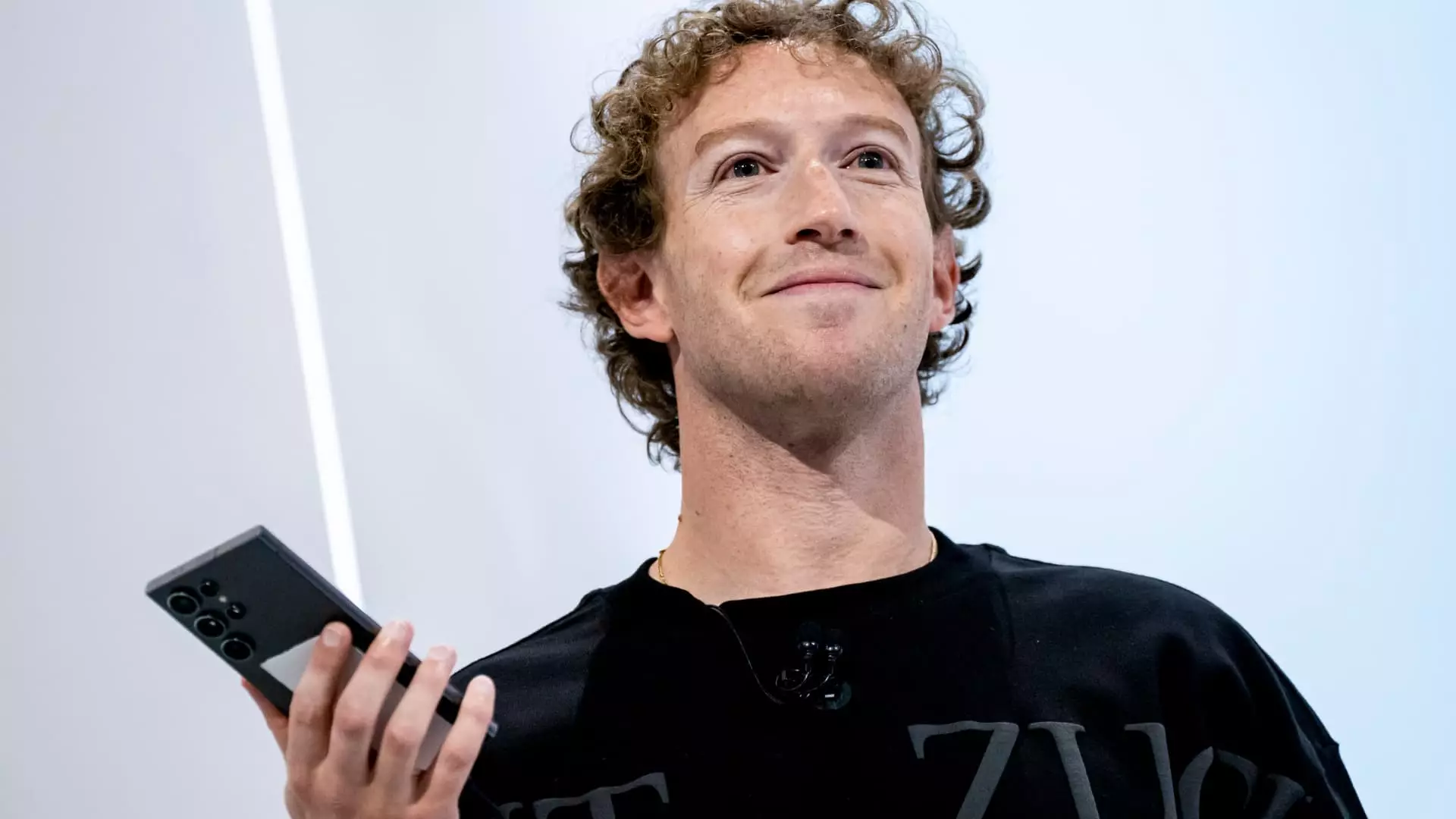In the ever-evolving landscape of technology, clashes between industry giants are inevitable. Recent remarks from Meta’s CEO Mark Zuckerberg during his appearance on the “Joe Rogan Experience” podcast have reignited discussions regarding Apple’s innovation trajectory. Dismissing Apple’s recent endeavors, Zuckerberg raised pointed criticisms, suggesting that Apple has stagnated in its quest for groundbreaking advancements since the days of Steve Jobs. His candid insights provide a vantage point into the fierce competitive dynamics within the tech sector.
Zuckerberg’s key argument is centered around the notion that Apple has hit a plateau in innovation. He acknowledges the instrumental role of the iPhone in transforming global communication but asserts that the tech giant has not introduced any significant products following Jobs’ era. Instead, he describes a situation where Apple has seemingly focused more on maintaining its existing dominance rather than propelling the industry forward with new, game-changing technology. The lack of substantial advancements undermines the perception of Apple as a leader in innovation, as new iterations of devices fail to inspire customers to upgrade promptly.
Sales projections reveal a concerning trend for Apple: consumers are increasingly reluctant to purchase the latest iPhone, often citing minimal enhancements compared to previous models. This situation poses a strategic dilemma for the company. How can Apple sustain its revenue streams without meaningful advancements to drive upgrades? According to Zuckerberg, the answer lies in Apple’s often-criticized practice of enforcing a 30% tax on developers and promoting proprietary accessories, like AirPods, that restrict opportunities for third-party products. This revenue strategy, he argues, merely creates a veneer of profit while stifling competition and innovation.
The tech world thrives on the delicate balance between user privacy and corporate profitability. Apple has positioned itself as a champion of consumer privacy and security, often using these principles to justify its restrictive ecosystem. Zuckerberg, however, contends that these defenses are masks for a more pernicious reality. He highlights a perceived contradiction: while Apple claims to enhance security, its rigid protocols effectively exclude other innovations that could potentially benefit users.
Zuckerberg suggests that Apple’s stringent rules are not only arbitrary but could also be redesigned to foster a more inclusive environment for third-party developers. This perspective implies that Meta, and potentially other companies, could significantly bolster their profits and technological offerings if Apple relaxed its restrictions. The irony in this situation is palpable; a company revered for its commitment to consumer protection is simultaneously accused of hampering the very innovators that could expand the ecosystem it protects.
The Future of Virtual Reality: Opinion on the Vision Pro
The introduction of Apple’s Vision Pro headset has sparked debate within tech circles, prime among them Zuckerberg’s critical analysis. While he acknowledges Apple’s attempts to redefine virtual reality, he does not shy away from expressing disappointment regarding the device’s market reception. Zuckerberg’s framing of the Vision Pro as a significant venture for Apple indicates an understanding of the challenges businesses face when entering new markets. He encourages a long-term perspective on the device, albeit with reservation—signifying that initial attempts may fail but succeed with iterative improvements.
Yet, his underlying emphasis is clear: Meta, through its line of Meta Quest headsets, is positioned as a serious contender in the VR space. Zuckerberg’s subtle promotion of Meta’s offerings hints at confidence in the company’s capacity to lead in an area where Apple is still trying to find its footing. As competition intensifies, the clash between Apple and Meta expands beyond their existing products and into defining the future of user experience within immersive technologies.
The rivalry between Zuckerberg and Apple epitomizes the ongoing discourse in technology—where innovation meets regulation, and competition breeds scrutiny. Zuckerberg’s insights into Apple’s recent tactics compel a re-evaluation of the surrounding perceptions of both companies. As the industry grapples with rapid advancements and evolving consumer expectations, the outcomes of these struggles remain uncertain. One thing is clear: the competitive dynamics in the realm of technology will continue to reshape the landscape, prompting companies to adapt or face obsolescence.

